Personal sacrifice is necessary for the revolution from "summary" of Darkness at Noon by Arthur Koestler
The revolution demands sacrifice. It requires individuals to set aside their personal desires and needs for the greater good of the cause. In the pursuit of a revolution, one must be willing to give up comforts, freedoms, and even life itself. This sacrifice is not optional; it is essential for the success of the movement. In "Darkness at Noon," the characters grapple with the necessity of personal sacrifice for the revolution. Rubashov, a committed revolutionary, comes to understand that his own sacrifice is required for the advancement of the cause. He realizes that his individual desires must be subordinated to the needs of the party. In order to achieve the goals of the revolution, he must be willing to give up everything, including his own life. The concept of personal sacrifice is deeply intertwined with the ideology of the revolution. The party demands loyalty and devotion above all else. Those who are unable or unwilling to make sacrifices for the cause are seen as traitors or enemies of the revolution. In this world, personal concerns are secondary to the needs of the collective. The individual must be willing to sacrifice everything for the greater good. Sacrifice is not only physical but also psychological. It requires individuals to suppress their own thoughts and emotions in service of the party. Doubt, fear, and hesitation must be cast aside in favor of unwavering commitment to the cause. This psychological sacrifice is just as important as any physical sacrifice, as it ensures the unity and strength of the movement. In the world of "Darkness at Noon," personal sacrifice is not only necessary but inevitable. The revolution demands total dedication from its followers, and those who are unable to make sacrifices are quickly weeded out. For Rubashov and his comrades, the choice is clear: sacrifice for the revolution or betray the cause. In the end, personal sacrifice is the ultimate test of loyalty and commitment to the revolution.Similar Posts

Success comes at a cost
Raghu believed that success was all about making sacrifices. He had seen it firsthand in his pursuit of wealth and power. From ...
Embracing challenges can lead to personal growth
In the face of adversity, one has the opportunity to discover their inner strength and resilience. When confronted with challen...
Fear of failure
The fear of failure is a powerful force that can drive people to great lengths in order to avoid disappointment and shame. This...
Buddha and Karl Marx offer different paths to social transformation
Babasaheb Ambedkar delves into the contrasting approaches to social transformation advocated by Buddha and Karl Marx in his wor...

Their connection deepens, transcending the physical
Their relationship evolved beyond mere physical attraction. It was something deeper, something more profound. They connected on...
Advocating for meaningful social change
In the struggle for justice, it is imperative to push for real and lasting transformation in society. This requires a commitmen...
Time and space warp as Jason navigates different dimensions
As Jason navigates different dimensions, time and space contort around him like a twisted funhouse mirror. In this shifting rea...
The Gulag destroyed lives and families
The Gulag was a monster that devoured everything in its path. It did not discriminate between the guilty and the innocent, the ...
